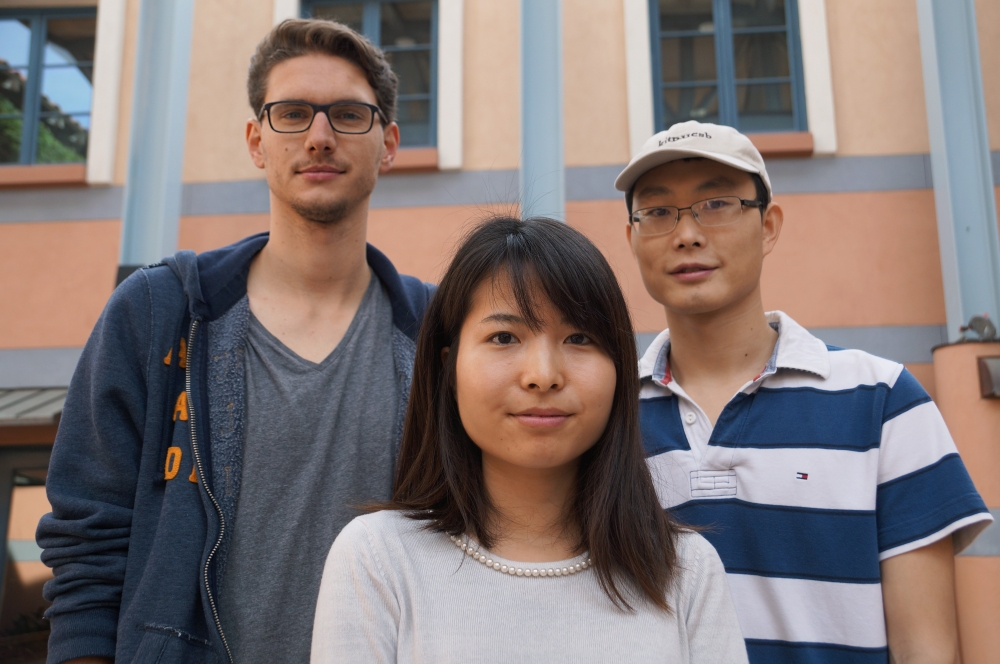
Going International
For many of the graduate students who come to UC Santa Barbara’s Kavli Institute for Theoretical Physics (KITP), the experience is a dream come true simply for the science. The nearby ocean and the area’s mild weather is an added benefit.
Since 1999, Ph.D. candidates from institutions across the United States have been mixing California sun and science as participants in KITP’s Graduate Fellows Program. And this year, for the first time, graduate students from foreign institutions are enjoying the experience as well, thanks to a grant from the Gordon and Betty Moore Foundation.
“Our program visitors are international and now our visiting graduate students are as well,” said KITP Director Lars Bildsten. “The Graduate Fellows Program is unique because while the students are far along on their theses, they get huge exposure to the scientific community here, where participants have time to interact in ways they wouldn’t be able to if they remained at their home institutions.”
Graduate fellows stay for six months and each is assigned a KITP permanent member as a mentor. Bildsten noted that the students are essentially free agents.
“They are treated similarly to postdoctoral scholars in that their research is not directed in any way,” he said. “As long as they are interacting and benefiting, we let them do their own thing.”
During their tenure at KITP, graduate fellows attend lectures on a variety of topics in physics, some related to their area of study but many outside their field. Not only do they benefit from being in a different environment, they also expand their knowledge of physics.
“I’ve definitely found that discussions I’ve had with other students could lead me in new directions,” said Rina Takashima, a graduate student from Kyoto University who is writing her thesis on magnetism in condensed matter.
“The program is intended to broaden your horizons,” said graduate student Xiao Yin of the University of Colorado at Boulder, whose thesis will examine the intersection of cold atomic and condensed matter physics. “Ph.D. study is very specialized on one point, but the goal of KITP is to open your eyes to see other fields.”
The graduate fellows program is the brainchild of Nobel laureate and physics professor David Gross, a former director and permanent member of KITP. More than 16 years ago, he envisioned the program as a mutually beneficial experience for both Ph.D. candidates and KITP.
“On one hand, this institution — and physics for that matter — needs interaction with young people,” Gross said. “On the other hand, students working on their Ph.D. theses are very narrowly focused and coming here not only exposes them to other areas of physics but also shows them firsthand what it’s like to be a researcher and how important collaboration really is.”
Oxford University student Thomas Scaffidi, who is completing his Ph.D. thesis on symmetry-protected topological phases, embarked on a new collaboration with people he met during his recent tenure as a graduate fellow. “I already had a few projects going on before I arrived,” he said. “Coming to KITP enabled me to gather feedback about them and has given me a lot of new ideas to pursue.”



